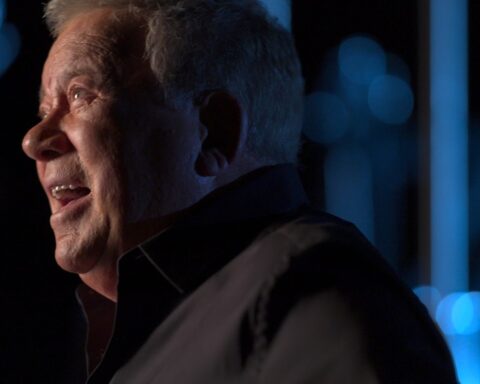Hugh Hefner’s After Dark: Speaking Out in America
(Canada, 98 min.)
Dir. Brigitte Berman
Hugh Hefner’s claim to fame might his centerfold spreads of bunnies and beavers, but he did a lot more than publish some dirty magazines. Oscar winner Brigitte Berman returns to the world of the late Playboy icon following her 2009 documentary Hugh Hefner: Playboy, Activist, and Rebel and in the wake of both Hefner’s death and the #MeToo movement, delivering a balanced and positive portrait of the man’s work is no enviable task. However, the new doc Hugh Hefner’s After Dark: Speaking Out in America looks not at the part of Hef’s career for which he was better known and it adds some nuance to his legacy without making excuses for aspects of his career that have fallen out of favour. (Or that have fallen further out of favour than they were before.) The film reminds audiences—or for younger viewers, informs them for the first time—that Hefner pioneered conversations of representation and equality on the airwaves.
Speaking Out in America trades Hefner’s silk pajamas for a swanky tuxedo and focuses exclusively on his two significant TV shows. The first segment of the film presents Playboy’s Penthouse, which ran for two seasons from 1959 to 1960. Berman offers lots of archival to convey the energy and significance of Playboy’s Penthouse. The program, a precursor to reality television, combined the talk show formula with the Playboy lifestyle as smartly dressed people knocked back cocktails and had a good time. More significantly, the treasure trove of archival footage reveals that Hefner drew his repertoire of entertainers from a diverse spectrum and invited artists both Black and white to perform. One archival snippet offers a young Nina Simone setting the piano ablaze, just as one example among many of the voices that Penthouse helped bring into the mainstream. The smoky vocals of Sarah Vaughan are a highlight of the film.
Berman’s doc shows that, on one hand, Hefner extended the Playboy brand through the airwaves, shrewdly using the diversity of media channels to bring the appeal of good company and sexy women into the homes of anyone who could tune in. On the other hand, the doc illustrates how Playboy made some early efforts for cultural diversity and inclusion in media as Hefner recognized the power television had in changing people’s minds through positive images. (A fascinating contradiction of a man, mind you.)
The second show, Playboy After Dark, comprises the bulk of the documentary. Berman’s film offers oodles of footage from Hefner’s next effort, which ran from 1969-1970 and was more of a casual, boozy, talk show. Snippets of Playboy After Dark portray Hefner leading a range of celebrities in conversations about the politics of the day, fuelling engaging debates about gender and racial equality, as well as the Vietnam War and the draft. There is something undeniably “bougie” about the affair, since Hef and company debated these issues from the comfort of a luxurious pad while decked out in the finest clothes and rocked out to Steppenwolf in between hot topics.
Speaking Out in America features an A-list roster of celebrities who reflect upon the two series and their contribution to social progress. Berman lands a number of interviews with folk singers and rock stars who appeared on Hefner’s programs, like Joan Baez, Pete Seeger, Jim Brown, and Smokey Robinson—many of whom are just as fired up about Trump as they were about Vietnam. Stars like Whoopi Goldberg and Bill Maher, on the other hand, discuss the tough road to social progress and the impact that shows like Playboy After Dark have in furthering the conversation. Berman’s film, like many great music and pop culture docs, uses the time capsule of popular culture to reflect upon the influence of art and media to shape social progress.
The film also marks a final credit for a pioneer of the Canadian film scene. Speaking Out in America is co-written and produced by Berman’s late husband, Victor Solnicki, who passed away the day their previous doc, The River of My Dreams: A Portrait of Gordon Pinsent, premiered at TIFF in 2016. Solnicki, an executive producer of some groundbreaking Canadians films like Scanners and Videodrome, certainly knew the power of images. His final film with Berman reminds audiences of the importance of seeing their lives and experiences reflected onscreen, whether through a musical guest who looks just like they do or a talking head who echoes their anti-war sentiments. This debate is certainly bigger than Hugh Hefner ever was—and matters regardless of what one thinks of the man.
Hugh Hefner: Speaking Out in America had its Canadian premiere at the Whistler Film Festival on November 30.











